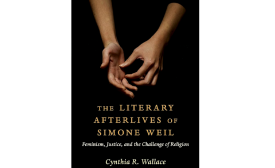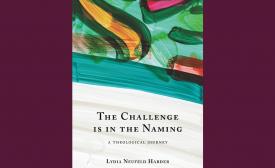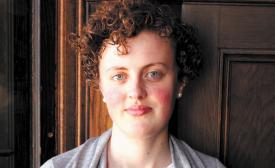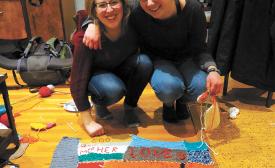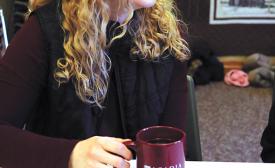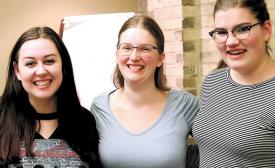feminist theology
Menno theology in light of feminist critique
In their appreciative foreword to Mennonite theologian Lydia Neufeld Harder’s retrospective essay collection, Kimberley Penner and Susanne Guenther Loewen write of the time, hospitality and encouragement that Harder provided to both of them during their PhD studies and dissertation writing.
Wrestling with challenging texts
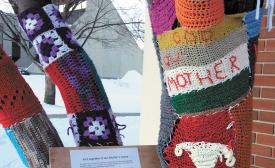
Nicolien Klassen-Wiebe and Erin Froese ‘yarn-bombed’ a tree on CMU’s campus as part of a project exploring ecofeminism. (Photo courtesy of Erin Froese)
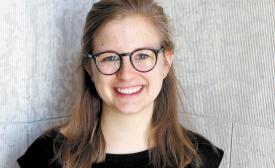
Laura Carr-Pries created a worship resource in the CMU course, Feminist Perspectives on Bible and Theology. (Photo by Aaron Epp)
Most upper-level university classes end with a final essay, not a photography project, prayerful meditations or a “yarn-bombed” tree. Sheila Klassen-Wiebe, however, took the road less travelled for Feminist Perspectives on Bible and Theology.
Studying the Bible through a feminist lens
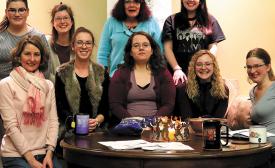
Around 10 women and female-identifying people meet weekly at Erb Street Mennonite Church in Waterloo, Ont., for Feminist Bible Study, an initiative supported by Pastors in Exile. (Photo by Jessica Reesor Rempel)
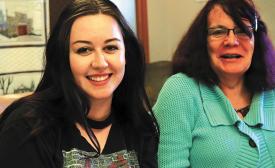
‘In the framework of my churches that I was at growing up, women weren’t portrayed as powerful people God worked through,’ says Caitie Walker, left, pictured with fellow Feminist Bible Study participant Emily Leyland. (Photo by Jessica Reesor Rempel)
Around 10 women and female-identifying people sit in a circle at Erb Street Mennonite Church in Waterloo, every week, drinking tea and discussing biblical texts through a feminist lens.
Remembering the mothers of the ‘disappeared’
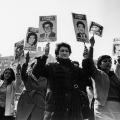
Chilean mothers of the “disappeared” gather, holding signs of their missing loved ones. (Photo by Kena Lorenzini, from Wikimedia Commons)
When I was a young child, my family lived in Chile, where my parents worked at an inter-Protestant seminary. We happened to be there to witness the end of the brutal, U.S.-backed military dictatorship of Augusto Pinochet, as he was peacefully voted out of power in the late 1980s. Even as a child, I knew about the dictatorship’s practice of “disappearing” people—of kidnapping students and dissenters, torturing and often killing them in secret, and then denying any such people had been detained. They were simply gone without a trace.
Missing the Crucified Woman
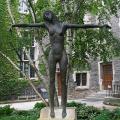
“Crucified Woman” by Almuth Lutkenhaus-Lackey (Photo by Susie Guenther Loewen)
The sculpture above stands on the grounds of my theological college, Emmanuel College in Toronto, of the United Church of Canada. I used to walk by her almost daily, on my way to class or the library. She has become more and more meaningful to me as I’ve learned more about her and as my knowledge of feminist, womanist, and other liberation theologies has deepened. Now that I’ve moved away from Toronto, I miss her, and I find that she is missing from a lot of our theological reflection on the significance of the cross and Easter as well.
Christ as Christa
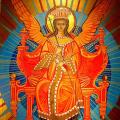
The icon of Sophia (Wisdom) by Eileen McGuckin (Wikimedia Commons)
Earlier this year I was invited to give a lecture on feminist Christology to a class of undergraduate students. Now feminist Christology is something very dear to me, even though a lot of people’s eyes glaze over with incomprehension when I say those words! Briefly put, it’s about who Jesus Christ is in women’s experience.

